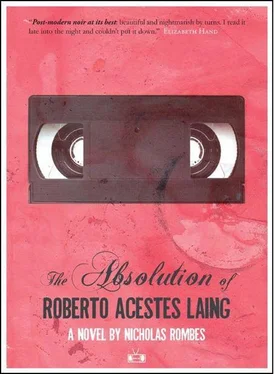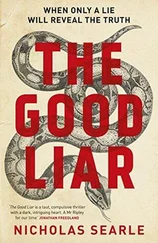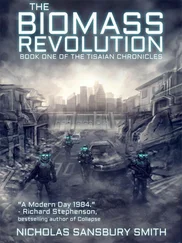“‘The chair,’ the one with the gloves said to another .
“‘The chair,’ the other replied.
“Image number seven is a color freeze frame of a packed stadium at night in the rain, and what at first appears to be spectators up on the enormous light poles turns out to be workers of some sort, perhaps repositioning the angle of the lights so they shine more brightly on Gutman.
“My accounting of the Gutman imbroglio now catches up to the present time. I remain in the room with candles, writing this on my knees, the open notebook before me on the floor. For some reason, I feel that I should use my remaining words not to speculate about the meaning of the chair, or my fate in it above the blue aquarium, if that is indeed what awaits me, but rather on Gutman himself, whose life I took. My mind goes back to that degraded video tape of Gutman speaking at the stadium laying out in modernist abstractions his structuralist vision for the total control of our society, and the hints that he gave regarding the coming ‘third purge’ which would be so annihilating that it would usher in a new Enlightenment.
“I struggle to recall the frames in question from that short video and what I remember most — as Gutman spoke with surprising force in the heavy rain — was the bright lights, lights that reminded me of a soccer stadium at night. But even at the time of the original broadcast I felt there was something about those lights, something terribly familiar. Now, in the clarity of forced isolation, I understand that the lights had been added in later, post-filming, and that Gutman had delivered his speech in the rain in complete and utter darkness, as if the absence of light itself prefigured the barren hopelessness of our land. I imagined the rain coming down so heavily as to choke Gutman’s words in his throat, and that his colleagues at the university whom he had betrayed, whose carpeted living rooms he had sat in before it all went bad, trading flirting jokes with the flirting daughters who, were they fortunate, had not been raped before being flayed and murdered in the abandoned gymnasium, and how even then, before the purges, he understood this about himself: that he was the sort of man to betray those closest to him for the chance to be a part of history.
“Image number eight, a moving image. Full color. The interior of the room from earlier. It appears that the sandstorm has entered the room itself. The window is blown open. The curtain blows wildly. Bits of paper and sand swirl and there’s a feeling of vertigo, as if the whole thing had been shot in a room that was falling from a very great height.
“If Gutman had indeed given his speech in the dark (the bright lights added later, perhaps to give the moment the thrust and force of an epochal ‘event’) then how had his face been illuminated, post-production? It seems to me now, as I realize that the Messiah Detectives have betrayed me and that there will be no inside man to rescue me, that somehow everything hinges on this question. For if those who made the videotape were truly able to manufacture light — enough wattage to illuminate the black-hole darkness of Gutman — then what else might they be capable of making, both of this world and not-of this world?
“The ninth image is black and white. A person’s hands bound together with rough rope at the wrists. It appears to be a freeze frame until we see an ant crawling across one of the hands.
“Hours have passed. One of the men who dragged me here — the one who pulled my hair — enters the room and sits in the empty chair across the table. His left eye droops. His hands are large. He seems all undercurrent, and no current. There’s a pull of gravity around him and I’m sure that were he to remain seated for hours eventually the objects in the room would all end up closer to him.
“Perhaps he is, after all, a fellow Messiah Detective, the so-called inside man. He seems to be waiting for me to speak first, but what to say? These thoughts only last a moment, and are quickly replaced with more disturbing ones.
“For I come to suspect — and then at last to understand with certainty — that the man across from me is, in fact, the one whom I was sent to kill. Writing this, as I am, in his very presence, I can hardly bring myself to print his name. There he sits, his hands now clasped together resting on the table as if to signal that he is about to make or has already made a decision.
“Gutman.”
The Absolution of Roberto Acestes Laing
“According to the deed let the measure of doom be fixed in proportion.”
— Old English saying
OUR LAST MEETING. DAYBREAK.
But before that, I must tell you this. That on my way to my own motel room the previous night I stopped at the tavern because I wanted to see the waitress, who happened to be standing next to the very table where she had served me a few days earlier, except this time she was not wearing her waitress outfit but a blue skirt and a jean jacket and I wasn’t even sure it was her until she turned around, her hand over her mouth laughing at some joke or story one of her friends had told — friends who were standing around the table with her — and looked at me. So she was the waitress, yes (the one who invoked the waitress in the Destroyer film) but also a woman whose name was Anna, Anna who took my hand when she saw me this time and led me through the tavern (where men smoked cigars and toyed absently or with secret intent with large rings on their fingers) back into a small dark room where several tables had been elaborately prepared with tablecloths and candles and fine china and silver for guests who were yet to arrive. I think she was drunk. Or else just very happy.
“This is where I work,” she said. “This is who I serve.”
But the small room (a room that I recall now as having stone walls and in whose doorway hung a large, heavy sheet of white fabric rather than a traditional door) was empty except for us. She leaned into me and then pushed away and then leaned in again and I wondered if she wanted me to kiss her or if in kissing her any hint of sense or meaning about what was happening would be ruined. Then she said something like, It’s the children who are missing and yet all we can think about is the suffering of those who have lost them , but she said this in a sort of giddy, smiling way, as if she was simply pretending to be drunk and happy so that her words to me in that room would not arouse suspicion and yet I wasn’t here for the missing children but for Laing. When her friends found us in the room ( there you are! ) and swept her away and back out into the main part of the tavern where I had first seen her I was relieved.
The next day — at daybreak — I met Laing for the last time. I think I brought him the bottle of nice bourbon not so much out of gratitude for telling me about the films he had burned, but rather out of guilt that I knew I wasn’t going to reveal to him anything about the waitress at the tavern even though he had some connection to her — however tenuous and slight and perhaps imaginary — through the character in Destroyer . I understood I had betrayed him, somehow, as unreasonable as that sounds. And yet I was compelled not to mention it because of a strange feeling, a spooky knowledge that in mentioning the waitress and what she said about the children to Laing, I would also be revealing to him the story of my daughter’s immeasurable suffering and death. It makes no sense to say I didn’t trust him with this knowledge about my past, I know. And yet there it is. Something about Laing had sparked a feeling of unease in me, and I felt the need to be protective of my own past, of Emily, as if that was something that he could somehow damage or take away.
Читать дальше












![Nicholas Timmins - The Five Giants [New Edition] - A Biography of the Welfare State](/books/701739/nicholas-timmins-the-five-giants-new-edition-a-thumb.webp)